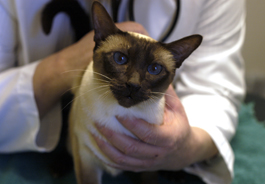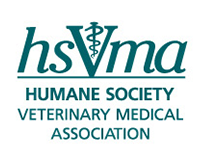Should Veterinarians Discuss the Costs of Health Care with Our Clients?by Barry Kipperman, DVM, DACVIM  Do veterinarians have a moral responsibility to discuss medical costs with their clients? Nancy Louie March 13, 2013 We have been mired in an economic recession for the past few years. This has had a profound impact on clinical practice including:
For generations, our profession embraced the conventional fee-for-service or "pay as you go" model, in which pet owners are expected to fully defray the costs of animal healthcare out-of-pocket. It should be clear to any caring clinical veterinarian, that this model no longer serves our patients, our clients, or our profession well. The ProblemIn a discussion I moderated at the Western Veterinary Conference in 2003 (note: we were in a far better economic environment at that time), the following questions were posed to an audience of 150 colleagues (audience response rates follow each question): Do financial constraints limit your ability to provide the quality of care you would like for your patients? If yes, is this a source of frustration for you? Do you routinely discuss vaccination protocols and the need for neutering with all your clients? Would enhanced financial coverage reduce the frequency of "economic euthanasias"? Do you routinely discuss the costs of emergency or specialist care for pets with your clients? Do you routinely discuss pet health insurance with your clients? If these responses are representative of most veterinarians, there are some real inconsistencies here that we need to consider. How do we reconcile the fact that financial limitations are a significant burden to our clients and patients, that these constraints sometimes mean the difference between the life and death of the animal (as well as affecting our own sense of career satisfaction), and yet we do not take the time to forewarn or inform our clients in advance of the costs of veterinary medical care, or provide them with information about insurance coverage? My suspicions about why we ignore this problem include:
Examples of "professional excuses" for avoiding direct discussion of costs of care include:
What Do We Do?When polled, pet owners respond that they believe a major illness will only cost a few hundred dollars, when in fact veterinarians know that the actual cost is often thousands of dollars. Consequently, motivation among owners to pursue pet health insurance is diminished. An estimated 1-2% of all pet owners in the United States carry pet health insurance. We must narrow the knowledge gap between these financial expectations and the financial realities of veterinary medical care. As professionals devoted to the improvement of pet health, it's our collective moral responsibility to do our best to ensure that pet owners can defray the costs of medical care. I've seen far more animals die as a result of their owners' inability to afford recommended medical care than due to fleas, prostatic disease, pyometra, and mammary cancer combined. Two case examples:
The Solution
It is time for a new paradigm in which general practitioners more clearly and consistently provide their clients with information and options to assist them in coping with the costs of medical care for their pets. For most clients, the initial exposure to the veterinary medical system is through their visit to a general practitioner for vaccines. Letting your clients know that insurance and credit plans exist, and that the cost of a major illness can run thousands of dollars, is your obligation as a responsible family doctor. Consider how your valuable time is spent with your patients in the first six months of their lives, and which subjects will have the greatest impact on their ultimate longevity and quality of life. Besides the profound impact of behavioral/elimination problems leading to euthanasia decisions, I can't think of another topic that can have such a dramatic and daily impact on us, our patients, and our clients, and that for the time being, we are generally choosing to ignore. Until the day when most of us take the time to discuss the costs of medical care with our clients, I will continue to feel deep regret when the next referred pet owner in my exam room looks up at me through tears and states "I had no idea it would ever cost this much to save my dog's life."
Acknowledgement: The author has no financial affiliation with any of the companies providing financial resources listed to the right.
 Dr. Kipperman and Winston Dr. Barry Kipperman is a 1987 graduate of University of Missouri College of Veterinary Medicine and obtained his board certification in veterinary internal medicine in 1994. He owns a 24-hour referral and emergency practice in Dublin, Calif.. Dr. Kipperman has published numerous articles on the topics of animal advocacy and veterinary ethics. He is a guest lecturer in the ethics course at the UC Davis School of Veterinary Medicine and has presented symposia on standards of care and veterinary ethics at national veterinary meetings. |
